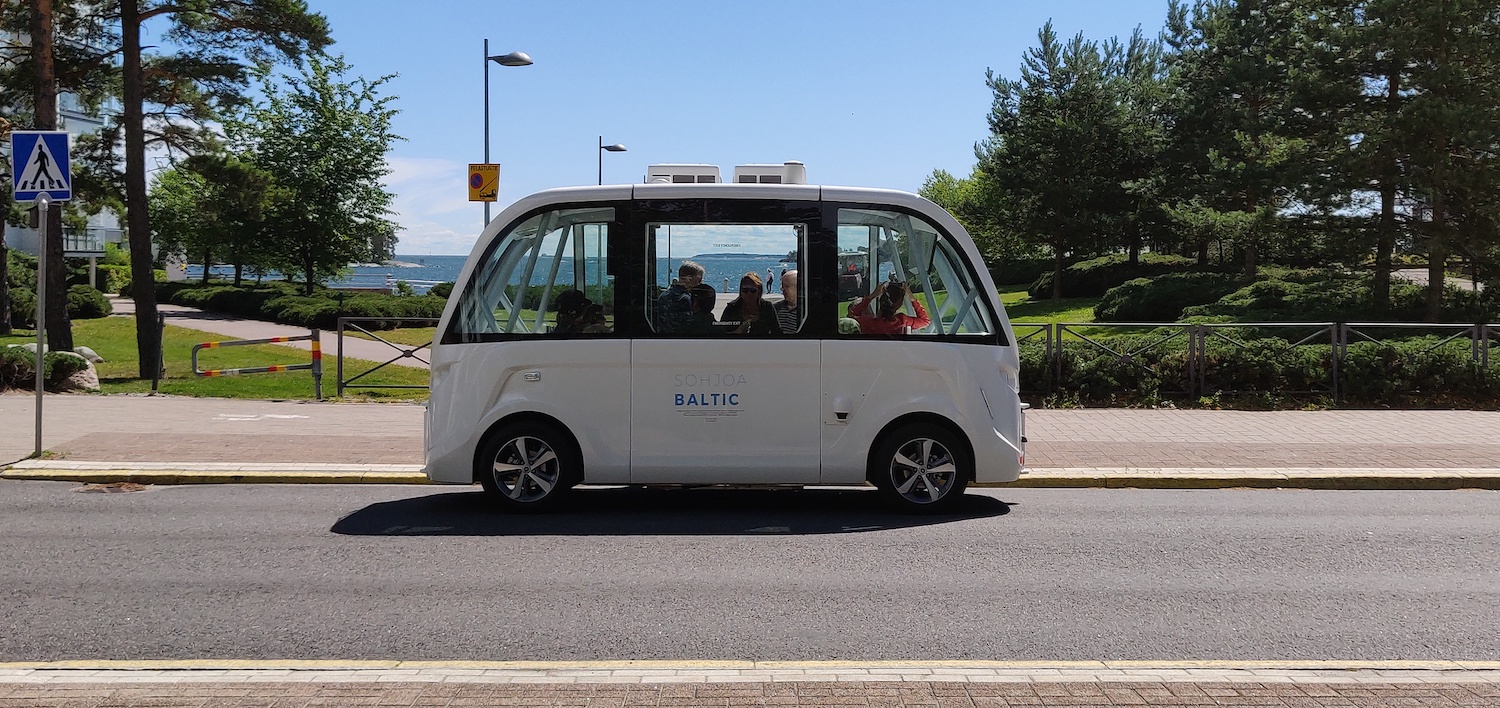The Sohjoa Last Mile project promoted the development of automated public transport with the aim of improving the first and last mile passenger experience of urban transport in particular.
Goals
The primary objective of the Sohjoa Last Mile pilots was to operate automated minibuses without a safety driver inside the vehicle. The pilots also involved the testing of a demand responsive service concept and focused on improving the reliability of services. Sohjoa Last Mile utilised the lessons learned in the Sohjoa Baltic project and raised the level of difficulty of the pilots to the next level.
Duration, partners and funding
- Project duration: 1.10.2020-31.12.2021
- Budget: Interreg Baltic Sea Region granted 893 203 euros for the project. The share of Forum Virium Helsinki was 83 250 euros.
- Partners of Forum Virium Helsinki in the project: Metropolia University of Applied Sciences (project coordinator), Tallinn University of Technology, Tallinn Transport Department, Zemgale Planning Regio (Latvia), City of Gdansk and Municipality of Kongsberg (Norja).
The role of Forum Virium Helsinki
The role of Forum Virium Helsinki was to provide policy makers and relevant stakeholders with information on automated public transport and to lobby for necessary regulatory changes. In addition, Forum Virium Helsinki supported local workshops and project communications with its expertise.
The main results of the project
Three automated electric shuttle (robot bus) remote operating pilots were organised in Kongsberg, Tallinn and Gdansk in 2021. Key Messages and related materials were produced, such as an animation, powerpoint and one-pagers. These were distributed to stakeholders at various Directorates at the European Commission, the Commissioner herself, and Members of the European Parliament to influence EU regulations.
Key Messages presentation slides (pdf)
Project benefits for Helsinki
The project generated information for the traffic planners in the City of Helsinki and the Helsinki Regional Transport Authority, allowing them to prepare well in advance for future changes and possibilities. Notably in relation to relevant regulatory aspects of the use of automated vehicles for public transport. The project illustrated the benefits that driverless technology can provide to the public transport services in Helsinki. On the whole, the project promoted Helsinki’s smart transport strategy and environmental goals.
Even though there was no real-life pilot in Helsinki in this project, lessons were drawn from the pilots in Tallinn, Gdansk and Kongsberg with regard to technical capabilities and potential risk when driving without a safety driver. Also results of passenger surveys and surveys on the communication between the bus and other participants in the traffic were beneficial for Helsinki’s future operations. Lastly, the pilots generated knowledge on 5G network advantages and requirements, and vehicle-to-infrastructure communication.
Project materials
Materials on the project website: Sohjoa Last Mile

